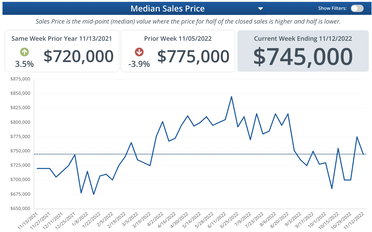 The recent news surrounding the National Association of REALTORS® (NAR) settlement agreement has certainly stirred up a lot of chatter within our real estate circles and among the public. With so much misinformation floating around, it's important set the record straight and shed some light on what this settlement really means for our industry, clients, and colleagues. First, let's clear up one of the biggest misconceptions making headlines: NAR has never been in the business of dictating, or even suggesting commission rates. Contrary to what many reports suggest, commissions have always been up for negotiation between brokers and their clients. This settlement doesn't change that fundamental aspect of how real estate transactions work. It's worth noting the irony of the situation when it comes to the attorneys who spearheaded the litigation against NAR. While they accused NAR of price-fixing, their own professional association has specific fee recommendations prominently displayed on their website. This glaring double standard highlights the importance of scrutinizing accusations and ensuring consistency in standards across all industries. Now, about the settlement itself—it's currently awaiting judicial approval and involves a sizable payout by NAR over four years, as well as several policy changes. NAR's goal in settling was to put an end to the litigation surrounding broker commissions and pave a smoother path forward for the industry. While it does seem that there would have been a strong case for an appeal, the settlement puts an end to the class action suits brought on by opportunistic attorneys, and will allow the industry to focus on what really matters—serving our clients. One key takeaway from the settlement is the preservation of consumer choice. Cooperative compensation—a system where sellers' brokers offer a slice of their fee to the buyers' broker who brings in an accepted offer—remains intact. However under the proposed changes, these offers of compensation would now have to be communicated off the MLS. Here in Greater Boston, our local MLS, MLSPIN, isn't under the ownership of NAR. So, it remains to be seen how MLSPIN will respond to the new regulations outlined in the settlement but assuming they adopt the changes, it will add a bit of complexity and unfortunately less transparency for buyers and their agents. As a brokerage we'll remain committed to ensuring clear and consistent communication for all of our clients throughout the process. The other policy change is that buyers' agents will be required to have a signed buyer agency agreement in place with a client before showing a property. This is one positive resulting from the proposed settlement, as these agreements will ensure that all buyers working with a Realtor will have clarity on what to expect from their agent and how that agent will be compensated. It's important to note that not all brokerages and agents work as Realtors, and would therefore not be bound by any of the proposed changes. NAR is a professional organization and the new regulations would apply to their own rules for members, which are distinct from state licensing laws. This adds another layer of confusion for the general public, as policies won't be consistent across the industry. Our role as brokers and agents will be to help clients understand their options and which regulations we're required to follow. With the exception of the requirement of buyer agency agreements, a large part of the proposed changes actually takes us back to old ways of doing business that were in place before current consumer protection policies came into play. Change is nothing new in this industry, and as a local, independent brokerage, we're dedicated to supporting our clients and colleagues through the changes. We'll always be here to provide reliable guidance and assistance as we navigate this evolving landscape together.
0 Comments
 There has been a LOT of news in the real estate industry lately so this month's blog post is a roundup of some of the most important stories to watch, whether you own property in Massachusetts, work as an agent in the Boston area or are interested in what's going on in the overall economy as it relates to residential real estate.
Wherever your love-hate relationship with winter stands at the moment, there are always ways to make the most of the season. We wanted to share a few gems across Massachusetts that can help you get outdoors and really turn our area into a winter wonderland.
1. Sleigh Bells Ringing at Larz Anderson Park, Brookline Ready for a sled-tastic time? Head over to Larz Anderson Park in Brookline. They've got this epic hill that promises all the thrills of a winter roller coaster. Grab your sled, feel the wind in your hair, and take in the awesome views of Boston from the top. It's like a winter adventure movie, but you're the star! 2. Winter Hiking Bliss at Middlesex Fells Reservation, Medford Need a nature fix? Middlesex Fells Reservation in Medford is where it's at. Trails covered in a soft layer of snow, frozen ponds – it's like stepping into a winter wonderland. Whether you're up for a challenge on the Skyline Trail or just want a chill stroll around Spot Pond, this place has winter hiking vibes down pat. 3. Zen Moments at Mount Auburn Cemetery, Cambridge Surprise – cemeteries can be zen, especially in winter. Head to Mount Auburn Cemetery in Cambridge for a serene retreat. Snow-covered monuments, tree-lined paths – it's like Mother Nature's art exhibit. Take a peaceful walk, soak up the vibe, and capture the unique beauty of this winter hideaway. 4. Snap Happy at Walden Pond, Concord Calling all photography enthusiasts! Walden Pond in Concord is your winter canvas. A frozen pond surrounded by snow-draped woods – it's a photographer's dream. Capture the sunlight dancing on the icy surface, reflections of bare trees, and the quiet beauty of Walden Pond in winter. 5. Cozy Picnic at Jamaica Pond, Boston Feeling snacky? Plan a winter picnic at Jamaica Pond in Boston. Pack a thermos of hot cocoa, load up on hearty snacks, and enjoy a chill picnic overlooking the frozen pond. It's like a mini winter feast with a view – the perfect combo for embracing the season. 6. Snowshoeing Shenanigans at Blue Hills Reservation, Milton Let's join the winter fun with some community snowshoeing at Blue Hills Reservation in Milton. They've got designated snowshoeing trails, so you can explore the winter wonderland with your fellow outdoor pals. Check for events or round up your crew for your very own snowshoeing adventure. So, fellow winter explorers, let's dive into the heart of Massachusetts' winter treasures. From Larz Anderson Park's sledding thrills to the calming vibes of Mount Auburn Cemetery, there's a winter wonder waiting for each of us. 7. Downhill Thrills: Skiing at Wachusett Mountain, Princeton Feel the need for speed? It might not be the same as NH and VT but if you only have a few hours, head to Wachusett Mountain in Princeton for some downhill skiing and snowboarding fun. With a variety of slopes, it's the perfect spot to carve through the snow and feel the winter wind in your hair. 8. Cross-Country Charm: Weston Ski Track, Weston For a more laid-back winter vibe, try cross-country skiing at Weston Ski Track in Weston. Glide through scenic trails surrounded by snowy landscapes, enjoying the tranquility of the outdoors at your own pace. Bundle up, gear up, and let's make the most of this chilly season together! Winter exploration, here we come! ❄️🏞️ Selling Your Home in a Winter Wonderland: Tips from Your Greater Boston Real Estate Experts11/30/2023  Hey there, future home sellers! As the holiday season descends upon us, you might be wondering if it's the right time to sell your home. Well, we're here to tell you that a winter wonderland can be the perfect backdrop for a successful home sale. Yes, even in Massachusetts! 1. Create a Cozy Atmosphere: There's something magical about walking into a warm and inviting home during the winter chill. Consider adding festive touches like a crackling fire, cozy blankets, and subtle holiday decor. Potential buyers will envision themselves celebrating the holidays in their new abode. 2. Embrace the Seasonal Curb Appeal: Just because it's winter doesn't mean your curb appeal should take a backseat. Keep pathways clear of snow, add some seasonal greenery, and perhaps place a welcoming wreath on your front door. A well-maintained exterior sets the stage for a positive first impression. 3. Showcase Energy Efficiency: In New England, we know a thing or two about winter weather. Highlight the energy-efficient features of your home, such as insulated windows, a reliable heating system, or energy-efficient appliances. Buyers will appreciate the thought put into keeping winter utility bills in check. 4. Professional Listing Photos are a Must: A winter wonderland can be stunning, but capturing its charm requires skill. Hire a professional photographer who knows how to showcase your home's unique features against a wintery backdrop. A picture is worth a thousand words, especially when it's the first thing potential buyers see. 5. Flexible Viewing Times: Winter days mean shorter daylight hours. Be flexible with viewing times to accommodate potential buyers' schedules. Consider adding cozy evening showings with well-lit interiors to showcase the warmth of your home. 6. Pricing Strategy: While demand might be slightly lower during the winter, serious buyers are still in the market and inventory tends to stay low as well. Work with your real estate agent to set a competitive yet realistic price. Highlight any updates or unique features that make your home stand out. Remember, winter in Massachusetts brings a unique charm, and your home can shine even in the coldest months. If you're ready to make a move this holiday season, our team is here to guide you through the process. There's been a flurry of recent news surrounding the class action suits that are shaking up the real estate landscape. Let's take a minute to dive into the details and clear up some of the confusion surrounding commissions.
First, we have to dispel the misconception that sellers were ever obligated to provide direct payments to buyers' agents. That's simply not the case. Instead, market dynamics have shown that sellers' agents offering a portion of their own commission to motivate a buyer's agent to bring a buyer has been a highly effective strategy in marketing a home. These buyers' agent incentives have become a prevailing norm rather than a mandated rule. Actually, back in the '90s, buyers' agents were known as sub-agents of the seller. Commission was generally distributed in the same way it is now except that buyers technically had no one representing their best interests. Policies changed to designate buyers' agents as having fiduciary duties to their clients while still having the opportunity to receive commissions from those sellers' agents who were offering it. This has been effective at protecting consumers on both sides of the transaction while ensuring that fees are paid in a way that doesn't negatively impact a buyer's ability to secure financing (details on that would be another lengthy blog post!). Still, it's easy to see how this complexity has been a source of confusion. Now, when it comes to commissions, it's crucial to understand that they are and always have been negotiable. There's a range of options from different types of brokerages offering differing levels of service. While the market may have determined an average amount that many sellers and agents find reasonable, it's important to recognize that consumer choice and alternatives have always existed within the industry. As for what brokers and agents do to earn their commission, it goes far beyond a mere fee. According to a 2022 NAR report*, homes without an agent tend to sell for approximately 35% less. Even after factoring in a 5-6% commission, sellers often find themselves with a significant 29-30% more in their pockets. Agents and brokers showcase their expertise as strategic advisors, marketing skills, transaction management and negotiation, all rolled into one. So, why would the former home sellers in recent class action suits feel they overpaid? It may have been in part due to poor explanation of the process on the part of their agents, but more likely opportunistic attorneys (ironically, whose commissions on these suits typically range from 25-33%) who took advantage of a lack of clarity in the marketplace. This underscores the importance of transparency and understanding within the real estate industry to prevent misconceptions from taking root. Looking ahead, we remain all in, continuously working hard on our clients' behalf. We're genuinely excited about any shifts in the industry that prioritize transparency—something we've always valued. Being a nimble, independent brokerage, we have a distinct advantage. No layers of red tape here, and no getting sidetracked by legal suits. Instead, we can continue to offer our undivided attention to our clients. Our adaptability allows us to swiftly embrace positive changes, ensuring a transparent and top-notch experience for our clients as the real estate landscape evolves. Cheers to a bright future! 🌟🏡 *2022 NAR Report  A roundup of ten of our favorite snow day spots for sledding, in and around the city:
 Rate hikes, mortgage interest rates and the impact on the housing market have been all over the news for the last couple of months. With dramatic and conflicting headlines, many buyers and sellers are confused about how all this will all impact their plans. Fortunately, there are opportunities available for the right situations and we have plenty of experience and data behind us to help guide decisions on timing and pricing. Some food for thought for three specific scenarios that are coming up regularly: Q: We're outgrowing our space but are locked into a low mortgage rate. We aren't comfortable affording a larger home with both a higher rate and higher purchase price. How can we purchase a home that fits our current needs? A: We often talk with families who are struggling to find something larger in town that fits their budget when both values and prices having increased. If you purchased when prices were lower and are locked into a mortgage rate in the 2s it can be hard to imagine trading that for one in the 6s with a higher balance. The good news is that there are probably two strengths here: equity and a low rate. You may want to consider keeping your current home - and mortgage - as a rental property. With low payments and strong rental demand, it's likely that it will generate some income each month. Be sure to double check your estimates with your agent or broker. If cash from the first house is needed to fund the next purchase, a HELOC may enable you to access additional equity. More good news here is that there is less competition for buyers than there was a few months ago so you may be able to negotiate the purchase price some and will be more likely to get an offer accepted that includes contingencies. Q: I'm a first time buyer and want to make a purchase before my rent increases again, but interest rates are pricing me out of the market. What should I do? A: The saying "marry the house, date the rate" applies here, but it's advice that needs to be taken with caution. The idea is that you can never change the purchase price but a rate can be refinanced in the future. If you're certain that you'll be able to sell if necessary within the next 5-10 years, purchasing a property, espeically one where you're able to negotiate a bit on price, and using an adjustable rate mortgage might be a good option. It's important here to understand all the terms of your mortgage and feel confident that if your payments do increase after the initial period that you'll be comfortable with the new amount or that you'll be in a position where you can sell or refinance. Another great option for first time buyers is house hacking. More about that in our last blog post on investing strategies. Rental income from another unit can go a long way towards making a purchase affordable that might not be otherwise. The bonus here is that it will probably allow you to build equity faster as well. Q: We spent more time preparing to sell than we expected and are worried we missed the peak of the market. Should we still list our home? A: The short answer is, it depends. The frenzy of multiple offers within the first hours on the market has died down but that doesn't necessarily mean it's not still a good time to sell. Inventory is still quite low and there are still buyers who need to move. And even though prices are down slightly from peaks in late spring, they're still higher than they were at this time last year. If you have plenty of time and don't need the certainty of a sale in the next couple of months, you may feel comfortable waiting to see what the spring market brings. There is some risk in this since we never know for sure what will happen, and if rates continue to rise there could be more downward pressure on prices. That said, spring almost always sees more buyer demand than late fall and winter so it's possible that waiting will have its rewards. Timing the market is nearly impossible though and always involves a bit of luck so don't beat yourself up for possibly missing the tippy top of the market. Besides, if you were spending that time improving your home it should be even more appealing to buyers than it would have been a few months back. There's no one-size-fits-all strategy and we're in a market that's fluctuating so it's as important as ever to consult with your agent/broker and lender on what strategies will help you reach your goals. To stay on top of the market, make sure to follow us on social for weekly updates specific to Greater Boston.  head ovWe get a LOT of questions from real estate investors in and around Boston, and all over Massachusetts. Not only are we a firm that works with a lot of investor clients, the vast majority of us are investors ourselves. This, alongside our role in representing traditional end-user clients and knowing what they want, gives us a unique perspective on what makes a successful investment. All of us also love talking real estate and are glad to spend time going over specifics of individual goals and strategies. There are many more, but here are the top five residential investing strategies for both new and experienced investors: 1. House Hacking This is usually the best choice for someone new to real estate because there are optimal financing options and it's more forgiving than some of the others. Buy a multi-family home, live in one unit (taking advantage of the best rates and lowest down payments as an owner-occupant) and rent the other(s). The rental income can be used to offset the mortgage, allowing the investor to live at a very low cost and benefit from appreciation. 2. Flipping Most people are pretty familiar with this concept thanks to HGTV. The strategy is simple: buy a property that needs work, fix it up and resell it for a profit. In reality, before making the purchase it's important to make sure you know your ARV (after repair value), your construction budget and timeline - and stick to them - to ensure the numbers will work. Always ask your agent about specific upgrades and projects based on a property's location and most likely end user to make sure your choices will translate to a good return on investment. 3. BRRRR Buy, Rehab, Rent, Refinance, Repeat: Think of this as a long term flip. Buy an undervalued property in need of repair, renovate it and get it rented out. Now you've increased the property value so you can refinance based on that amount, taking out your capital (and often more) to apply to the next purchase. Repeat and you'll build a cash flowing portfolio without tying up too much personal capital. 4. Short Term Rentals This has become a lot more popular in recent years since renting a property short term, or as a vacation rental, usually brings in a lot more than it would as a traditional long term rental. Lots of local investors see this as a strategy to use out of state but it can be done here in Massachusetts too, as long as you've been careful about checking local rules and regulations (Boston, for example, doesn't allow short term rentals with very few exceptions) and you've researched the seasonal fluctuations in what your rental will bring in. 5. Long Term Rentals Traditional long term rentals are another one that most people are familiar with; buy a property and rent it out for more than your expense. In Greater Boston, this is easier said than done and some investors buy rental property for appreciation rather than cash flow. With the right property (and location) though, investors can benefit from both cash flow and future appreciation. It's very important to go over Massachusetts landlord-tenant laws with your attorney - before making a purchase - and use approved paperwork provided by your agent to ensure everything is being done in compliance with state law. Most successful investors find one or two niches and areas that work well for them and are able to build wealth (we haven't even touched on tax savings) for themselves and their families. We love being part of the process and our clients' success, so if you aren't already working with us, head over to our team page and reach out for a consult.  A new school is here and that means everyone is already talking about the latest rankings. Parents, teachers and students know that school rankings need to be taken with a grain of salt. Each ranking system uses a different methodology and emphasizes certain factors over others and none can communicate things like individual experiences, special services, facilities, or extracurricular activities. Case in point: four different ranking sites, four different number one schools:
All of the above are focused on public schools but do include charter schools, which can be an important consideration for families moving to the area. Charter schools are usually available to students in several nearby towns based and base admissions on a combination of application, eligibility and lottery. All of these well-publicized school ratings are certainly not the whole picture but can be a starting point for more research and conversations with local families and administrators. Whether a potential buyer will have children in the local school system or not, it is important to at least take school ratings into consideration for a real estate purchase. Districts do move up and down in the rankings over the years but those districts (rather than individual schools) that are consistently towards the top of the list tend to benefit from better-appreciating real estate markets than others. A Realtor.com study done in 2016 found that homes in districts rated as a 9 or 10 by greatschools.org were an average of 49% more expensive than those rated a as 6 or less. Of course, property taxes and consequently school spending tend to be higher in these areas also which provides the public schools with more resources to be successful. Public school quality is just one factor of many including home price, commute, community, etc that buyers have to weigh as part of the whole picture and most home buyers have to prioritize their non-negotiables. Luckily, regardless of which town you choose, there are no wrong choices; Massachusetts is fortunate to have, as a state, the highest rated public schools in the country  In a strong sellers' market it can be tempting for homeowners and investors (and, unfortunately, a few agents) to skip going the extra mile in preparing a home for sale. After all, the home will likely get offers with or without things like staging, professional photos and a strategic marketing plan. The difference, though is in how strong those offers are and how quickly they come in. That difference can equate to tens of thousands of dollars and more. Buyers tend to develop feelings for a property, either positive or negative, very quickly after seeing the first photos or stepping through the front door. The way a home is styled and furnished has a huge impact on this first reaction, and ultimately the offers that buyers will make. With an occupied or already furnished home, a professional home stager or knowledgeable seller's agent can provide the owner with room-by-room suggestions on exactly what to clear out, rearrange, and specific items to add. Cleaning and decluttering alone makes a major difference but it's almost always worth going a step further and making some minimal investments in a few key up-to-date accent items in the right places or repainting a certain room in a more neutral color. Vacant properties can see an even more substantial impact on the bottom line when they're at least partially staged. We recommend staging at least a living room, dining room and primary bedroom and adding a few accessories or accent pieces to the kitchen and bathrooms. Good agents will have recommendations for home stagers who can supply and install everything needed and remove it in time for closing. Some investors choose to purchase inexpensive furniture and resell it just before closing or offer it to the buyers of the home. Others, especially those who build or renovate several properties per year, find that it's worth keeping their own inventory of staging supplies. This of course does require some design expertise and knowledge of current trends. The investment in staging (usually between $1,000-$7,000) can really pay off. According to research by the IAHSP, staged properties sell between 5-11 times faster than others. Not only is a faster sale far less stressful for sellers than spending months on the market, early offers tend to be much higher in price than those that come in after a property has been listed for a while. An NAR study found that staging equated to a 1-5% increase in sales price; definitely a solid return on investment. |
AuthorTory Keith, Broker/Owner of Board & Park. Archives
March 2024
Categories
All
|


 RSS Feed
RSS Feed